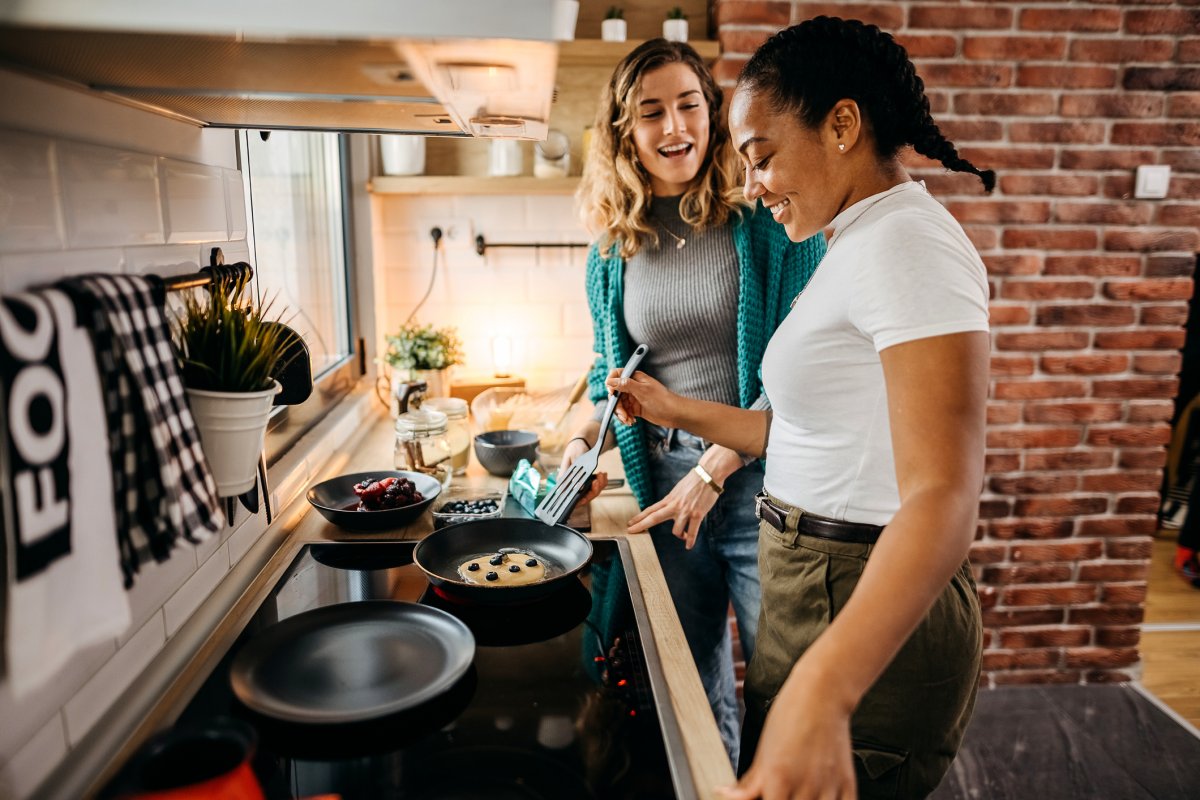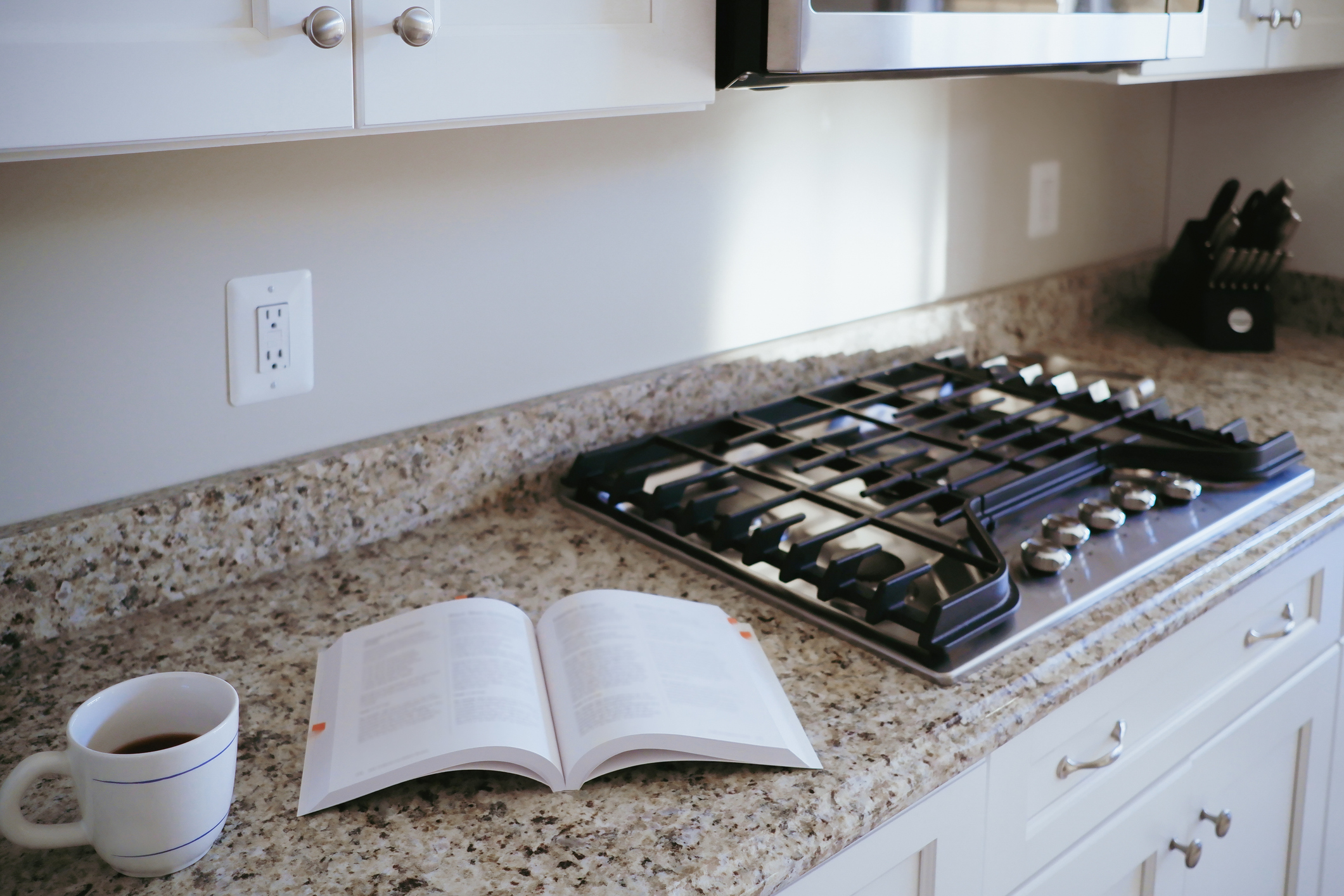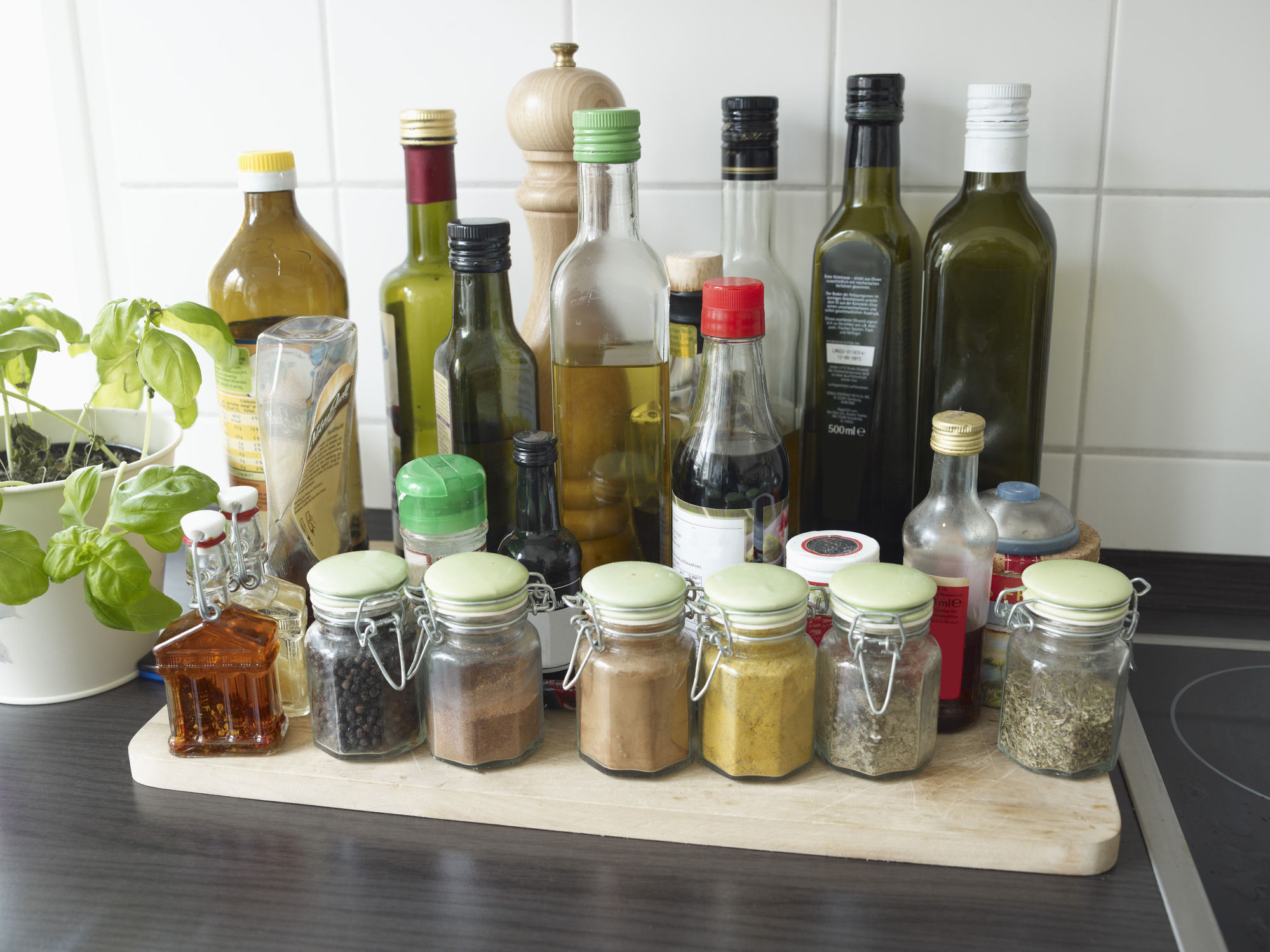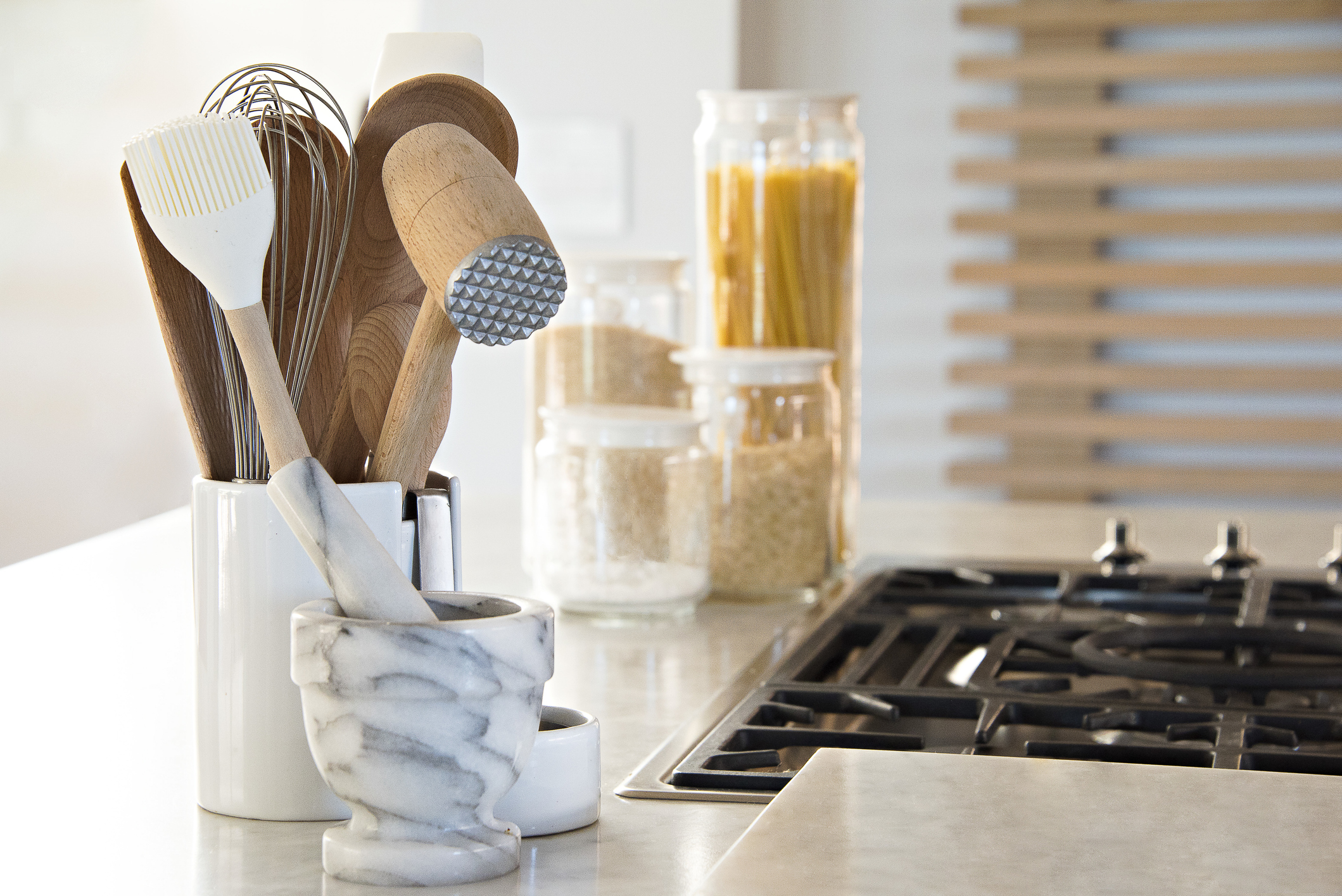

We may earn revenue from the products available on this page and participate in affiliate programs. Learn More ›
The area around your stove might seem like a convenient place to store frequently used cooking items, but this proximity poses hidden dangers that many homeowners tend to overlook. A stovetop can reach temperatures exceeding 500 degrees Fahrenheit during cooking, causing nearby surfaces to heat well above 100 degrees. This intense heat can damage some belongings or even trigger a serious fire hazard in your kitchen.
Plastic utensils that can melt and release harmful chemicals, cooking oils that become flammable when exposed to heat, and paper products that light up instantaneously are among items cooks might casually store near the cooking area that could be putting their homes at risk.
Andrew Lokenauth, founder of TheFinanceNewsletter.com and homeowner who has learned the lessons of what not to store near the stove the hard way, suggests creating a designated “no-store zone” extending about 2 feet on either side of your stove. “Anything that’s flammable, meltable, or temperature-sensitive should stay completely out of this area. I’ve gotten pretty strict about this rule—it just makes sense from both a safety and practical standpoint,” says Lokenauth.
Understanding where to safely store items in your kitchen isn’t just about organization—it’s an essential safety measure that could prevent costly damage to your home. Here is a list of common kitchen items that you should never store near the stove.

1. Paper Products
All types of paper products can ignite instantly and start a fire. Avoid keeping paper napkins, paper towels, doilies, cookbooks, recipe cards, and boxed foods like cereal on or near your stove. “All it takes is one splash of oil or one big flame, and you’ve got a serious fire hazard on your hands,” warns Lokenauth. Plus, the splashes of oil and food from the stove can stain items easily, so it’s best to store them in safer spots in the kitchen. Position paper towel holders, for example, on the wall opposite the stovetop or under cabinets out of reach of direct heat, recommends Gagan Saini, CEO of We Buy Houses in Metro Detroit.
2. Kitchen Linens
Avoid storing any kitchen linens such as dish towels, oven mitts, placemats, or fabric trivets near a gas or electric stove since they can ignite in a flash. While it seems convenient to have oven mitts sitting right next to your stove, avoid leaving them there. Instead, place these flammable items in a nearby drawer or in the pantry to protect them from the heat. Additionally, keeping these items next to the stove can damage them, causing them to warp, dry out, or melt if exposed to the heat.

3. Oils and Cooking Sprays
Never place oils above or beside a stove, says Saini. This includes all types of oils and cooking oil sprays. “Heat ruins the quality of oil fast and poses a fatal risk if bottles get broken where there is fire,” says Saini. “Pressurized cans like aerosol cooking sprays explode if they become warm.” Instead, store oil products in a cool, dark pantry or cabinet at least 3 feet away from your cooktop to ensure they maintain their flavor and to avoid a safety hazard.
4. Plastic and Wooden Containers, Utensils, and Cutting Boards
While it might seem sensible to place wooden or plastic cooking tools right next to the stove, think twice about doing so given how the heat can damage them. They can warp, dry out, or melt, not to mention catch on fire if they are too close to the heat from the stove. “I made the mistake of storing some plastic containers near my cooktop, and they warped from the residual heat,” recalls Lokenauth. “And don’t even get me started on the time I left a plastic cutting board too close to the stove—that $50 mistake won’t happen again.” Saini recommends keeping plastic and wooden items at least 12 inches away from the stove.

5. Spices
It’s quite common to see spice racks displayed on the counter near the stove for an easy reach when adding spices to dishes simmering on the cooktop. However, over time, the heat and steam from the stove can ruin the flavor of the spices. Plus, some spice containers (and a wood or plastic rack) can crack, warp, or develop mold over time, which ultimately destroys the spices as well. “The thing about spices that most people don’t realize is that they lose their potency super fast when stored above or near the stove,” says Lokenauth. “I used to keep mine in one of those cute over-the-stove racks until I noticed my $15 jar of saffron basically turned to tasteless red threads after a few months.”
